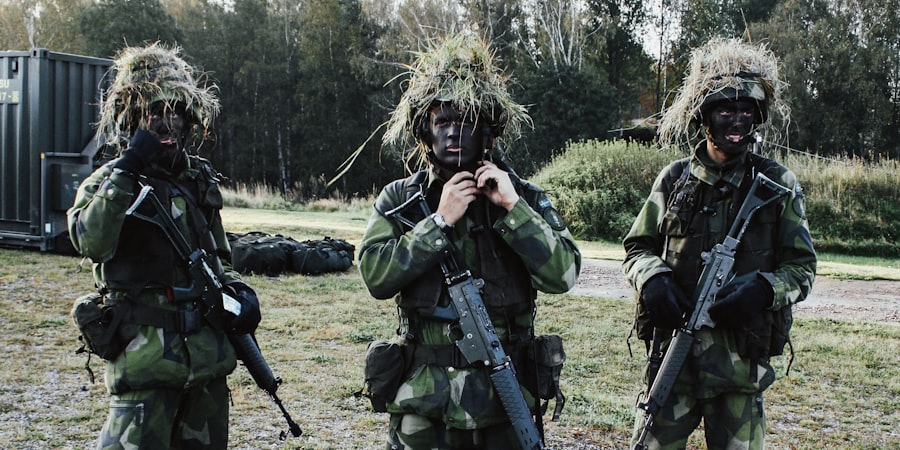The KGB, or the Committee for State Security, was the primary security agency for the Soviet Union, renowned for its sophisticated and often ruthless espionage tactics. Operating under a veil of secrecy, the KGB employed a variety of methods to infiltrate foreign governments and gather intelligence. One of their most effective strategies was the use of human intelligence, or HUMINT, which involved recruiting spies within target organizations.
These operatives were often placed in key positions where they could access sensitive information, making them invaluable assets in the KGB’s quest for military and political advantage. In addition to human intelligence, the KGB also utilized technical means to gather information. This included wiretapping, surveillance, and the interception of communications.
The agency invested heavily in technology that allowed them to monitor conversations and collect data without detection. Furthermore, they engaged in disinformation campaigns to mislead their adversaries and create confusion. By employing a combination of these tactics, the KGB was able to build a comprehensive picture of their targets, which significantly enhanced their operational effectiveness.
Key Takeaways
- The KGB used a variety of espionage tactics, including recruitment of spies, wiretapping, and covert operations.
- The KGB targeted military secrets, including weapon designs, defense strategies, and classified information about military technology.
- The stolen secrets had a significant impact on national security, leading to vulnerabilities and potential threats to the country’s defense capabilities.
- The KGB operated a vast network of spies, both domestically and internationally, to gather military secrets and intelligence.
- The stolen military secrets occurred within the context of the Cold War, heightening tensions and competition between global superpowers.
The Targeted Military Secrets
The KGB’s espionage efforts were particularly focused on acquiring military secrets from Western nations, especially the United States. The agency sought information on advanced weaponry, defense strategies, and technological innovations that could give the Soviet Union a competitive edge in the arms race. This included everything from nuclear capabilities to missile technology, as well as insights into military doctrines and operational plans.
The stakes were high, as the outcome of the Cold War could hinge on the balance of military power. One notable example of the KGB’s focus on military secrets was their interest in the development of stealth technology. As the U.S.
military began to explore ways to create aircraft that could evade radar detection, the KGB recognized the potential implications for global military dynamics. By infiltrating defense contractors and research institutions, they aimed to obtain blueprints and technical specifications that would allow the Soviet Union to counter these advancements effectively. The KGB’s relentless pursuit of such secrets underscored their commitment to maintaining parity with Western military capabilities.
The Impact of the Stolen Secrets

The impact of the KGB’s successful espionage operations was profound and far-reaching. By acquiring sensitive military secrets, the Soviet Union was able to enhance its own defense capabilities significantly. This not only allowed them to develop countermeasures against Western technologies but also contributed to a sense of security within the Soviet leadership.
The knowledge gained through espionage enabled the USSR to make informed decisions regarding military spending and strategic planning, ultimately shaping the course of the Cold War. Moreover, the stolen secrets had a ripple effect on international relations. As the Soviet Union advanced its military technology based on acquired intelligence, Western nations felt compelled to respond in kind.
This led to an escalation in arms development and an intensification of the arms race. The KGB’s actions thus not only bolstered Soviet capabilities but also contributed to a climate of mistrust and paranoia among nations, further entrenching the divisions of the Cold War era.
The KGB’s Network of Spies
| Country | Number of Spies | Operations |
|---|---|---|
| United States | Unknown | Various espionage activities |
| United Kingdom | Unknown | Covert operations |
| Germany | Unknown | Intelligence gathering |
Central to the KGB’s success in espionage was its extensive network of spies operating both domestically and internationally. This network included not only professional agents but also unwitting informants who were recruited from various sectors, including academia, government, and industry. The KGB employed a range of tactics to cultivate these relationships, often exploiting personal vulnerabilities or ideological sympathies to gain access to valuable information.
The agency’s ability to maintain such a vast network was facilitated by its rigorous training programs and operational protocols. Agents were trained in tradecraft, including surveillance techniques, communication methods, and counterintelligence measures. This ensured that they could operate effectively in hostile environments while minimizing the risk of detection.
The KGB’s network was not just a collection of individuals; it was a well-oiled machine that operated with precision and purpose, making it one of the most formidable intelligence organizations in history.
The Cold War Context
The espionage activities of the KGB must be understood within the broader context of the Cold War, a period characterized by intense rivalry between the Soviet Union and Western powers, particularly the United States. This geopolitical struggle was marked by ideological differences, military posturing, and a pervasive atmosphere of suspicion. In this environment, intelligence gathering became a critical component of national security strategy for both sides.
The Cold War created fertile ground for espionage as both superpowers sought to gain an upper hand over one another. The KGB’s operations were driven by a sense of urgency; every piece of intelligence could potentially alter the balance of power. As tensions escalated, so too did the stakes involved in espionage activities.
The KGB’s relentless pursuit of military secrets was not merely an exercise in information gathering; it was a vital aspect of a broader strategy aimed at ensuring Soviet dominance on the global stage.
The Consequences for National Security

The consequences of the KGB’s espionage efforts extended beyond immediate military advantages; they had lasting implications for national security in both the Soviet Union and its adversaries. For Western nations, particularly the United States, the realization that their secrets were being compromised led to significant changes in intelligence practices and national security policies. Increased funding for counterintelligence operations became a priority as governments sought to protect sensitive information from foreign adversaries.
In response to KGB activities, Western nations also began to enhance their own espionage capabilities. This included not only improving technical surveillance methods but also investing in human intelligence networks to counteract Soviet infiltration efforts. The cat-and-mouse game between intelligence agencies intensified as both sides sought to outmaneuver one another in an ever-evolving landscape of espionage.
The Uncovering of the Stolen Secrets
Over time, some of the KGB’s most significant espionage operations were uncovered, leading to high-profile cases that shocked both governments and the public. Investigations into espionage activities revealed how deeply embedded Soviet agents had become within key institutions in Western countries. These revelations prompted widespread concern about national security and raised questions about how such breaches could have occurred without detection.
The uncovering of these stolen secrets often led to dramatic political fallout. High-ranking officials were forced to resign or were prosecuted for their roles in allowing sensitive information to be compromised. Additionally, public trust in government institutions was eroded as citizens grappled with the implications of widespread espionage.
The exposure of KGB operations served as a wake-up call for many nations, highlighting vulnerabilities that needed to be addressed urgently.
The Fallout for the KGB
Despite its initial successes, the KGB eventually faced significant challenges as its operations came under scrutiny. The exposure of its espionage activities led to increased pressure from both domestic and international fronts. Within the Soviet Union, there were calls for reform as citizens demanded greater accountability from their government agencies.
The KGB’s reputation suffered as it became associated with secrecy and repression rather than national security.
Enhanced counterintelligence measures made it more challenging for spies to infiltrate key organizations or gather sensitive information without being caught.
This shift marked a turning point for the KGB, which had once enjoyed relative impunity in its operations but now faced mounting obstacles that threatened its effectiveness.
The Global Ramifications
The ramifications of the KGB’s espionage activities extended far beyond individual nations; they had global implications that shaped international relations for decades. The intelligence gathered by Soviet operatives influenced not only military strategies but also diplomatic negotiations and alliances around the world. Countries aligned with either superpower found themselves navigating a complex web of espionage that affected their own national security considerations.
As nations grappled with the realities of espionage during the Cold War, new alliances formed based on shared interests in countering threats posed by rival powers. This dynamic contributed to shifting geopolitical landscapes as countries reassessed their positions in light of intelligence revelations. The legacy of KGB operations continues to resonate today as nations remain vigilant against espionage threats that can disrupt diplomatic relations and compromise national security.
The Ongoing Threat of Espionage
Even after the dissolution of the Soviet Union, the threat posed by espionage has not diminished; rather, it has evolved in response to changing geopolitical dynamics.
Cyber espionage has emerged as a significant concern in recent years, with state-sponsored actors targeting sensitive information through digital means.
The lessons learned from past espionage efforts underscore the importance of vigilance in safeguarding national security interests. Governments must remain proactive in developing counterintelligence strategies that address both traditional methods and emerging threats posed by technology-driven espionage. As long as nations compete for power and influence on the global stage, espionage will remain an enduring aspect of international relations.
The Lessons Learned from the KGB’s Stolen Military Secrets
The legacy of the KGB’s espionage activities offers valuable lessons for contemporary intelligence practices and national security strategies. One key takeaway is the necessity for robust counterintelligence measures that can effectively identify and neutralize threats before they materialize. Governments must prioritize investment in training personnel who can recognize signs of infiltration and develop strategies for mitigating risks associated with espionage.
Additionally, transparency and accountability within intelligence agencies are crucial for maintaining public trust and ensuring effective oversight. As history has shown, unchecked power can lead to abuses that undermine national security efforts rather than enhance them. By learning from past mistakes and adapting strategies accordingly, nations can better navigate the complex landscape of modern espionage while safeguarding their interests on both domestic and international fronts.
In conclusion, while the KGB’s methods may have been rooted in a specific historical context, their implications continue to resonate today as nations grapple with ongoing threats posed by espionage in an increasingly interconnected world.
In a fascinating exploration of espionage during the Cold War, the article “Secrets of the Cold War: How the KGB Stole Military Secrets” delves into the intricate operations carried out by the KGB to obtain classified military information from Western nations. This piece provides a detailed account of the methods used by Soviet intelligence to infiltrate and extract sensitive data, shedding light on the high-stakes world of international espionage. For a deeper understanding of these covert operations and their impact on global politics, you can read more about it in this related article.
WATCH THIS 🤯How the KGB Stole America’s Future
FAQs
What military secrets were stolen by the KGB?
The KGB, the Soviet Union’s main security agency, was known to have stolen a wide range of military secrets from various countries, including the United States. These secrets included information about nuclear weapons, missile technology, and other classified military intelligence.
How did the KGB steal military secrets?
The KGB used a variety of methods to steal military secrets, including espionage, infiltration, and cyber warfare. They recruited spies within foreign governments and military organizations, and also used sophisticated hacking techniques to gain access to classified information.
What impact did the theft of military secrets by the KGB have?
The theft of military secrets by the KGB had significant implications for global security and the balance of power during the Cold War. It allowed the Soviet Union to gain valuable intelligence about the military capabilities and strategies of their adversaries, and also helped them to advance their own military technology.
What measures were taken to prevent the theft of military secrets by the KGB?
In response to the threat of espionage by the KGB and other foreign intelligence agencies, countries like the United States implemented strict security measures to protect their military secrets. This included increased surveillance, counterintelligence operations, and the development of advanced encryption and cybersecurity technologies.
What were the consequences for individuals involved in the theft of military secrets by the KGB?
Individuals who were caught spying for the KGB or involved in the theft of military secrets faced severe consequences, including imprisonment and in some cases, execution. The exposure of spies and the dismantling of espionage networks had a significant impact on the operations of the KGB and other intelligence agencies.




